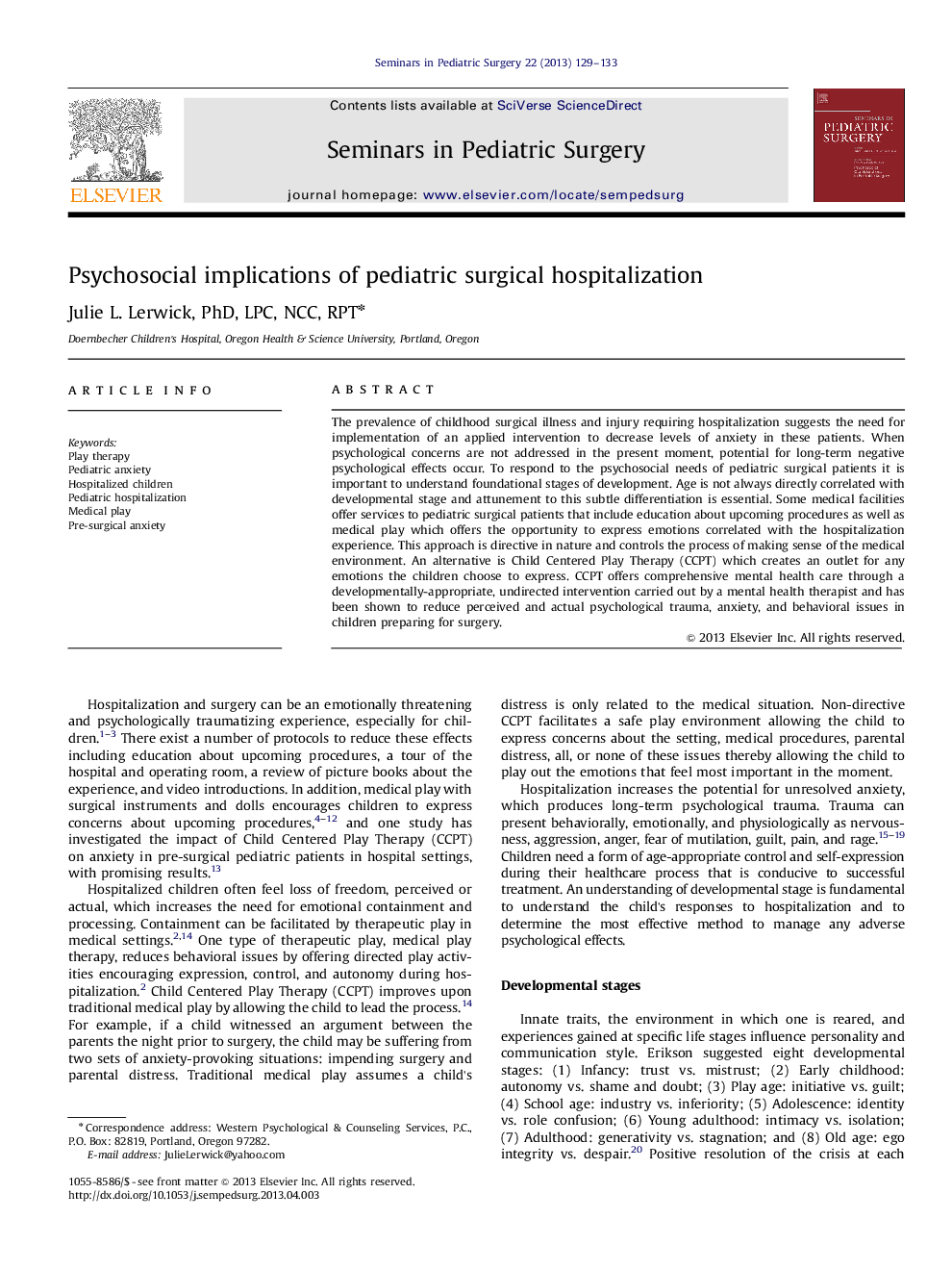| Article ID | Journal | Published Year | Pages | File Type |
|---|---|---|---|---|
| 4176573 | Seminars in Pediatric Surgery | 2013 | 5 Pages |
The prevalence of childhood surgical illness and injury requiring hospitalization suggests the need for implementation of an applied intervention to decrease levels of anxiety in these patients. When psychological concerns are not addressed in the present moment, potential for long-term negative psychological effects occur. To respond to the psychosocial needs of pediatric surgical patients it is important to understand foundational stages of development. Age is not always directly correlated with developmental stage and attunement to this subtle differentiation is essential. Some medical facilities offer services to pediatric surgical patients that include education about upcoming procedures as well as medical play which offers the opportunity to express emotions correlated with the hospitalization experience. This approach is directive in nature and controls the process of making sense of the medical environment. An alternative is Child Centered Play Therapy (CCPT) which creates an outlet for any emotions the children choose to express. CCPT offers comprehensive mental health care through a developmentally-appropriate, undirected intervention carried out by a mental health therapist and has been shown to reduce perceived and actual psychological trauma, anxiety, and behavioral issues in children preparing for surgery.
